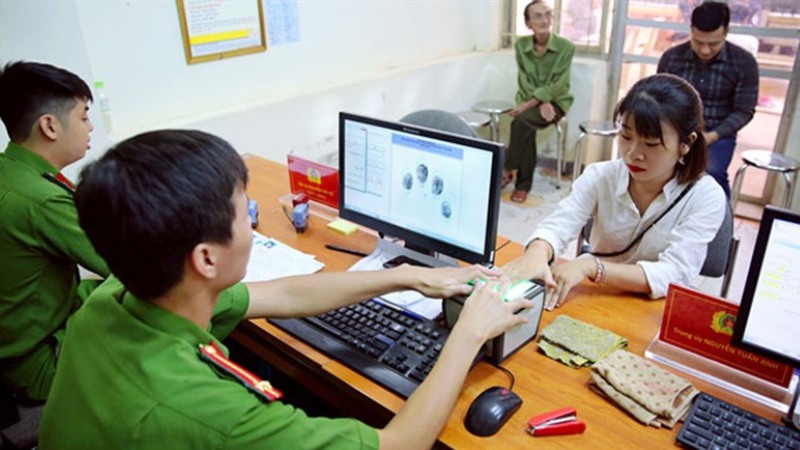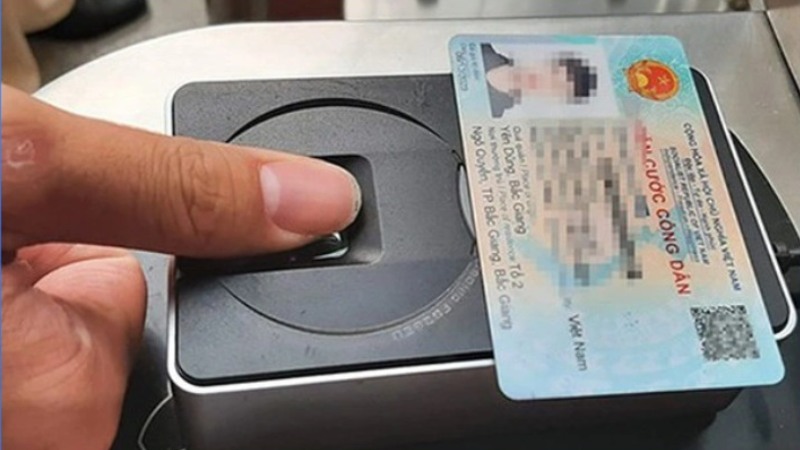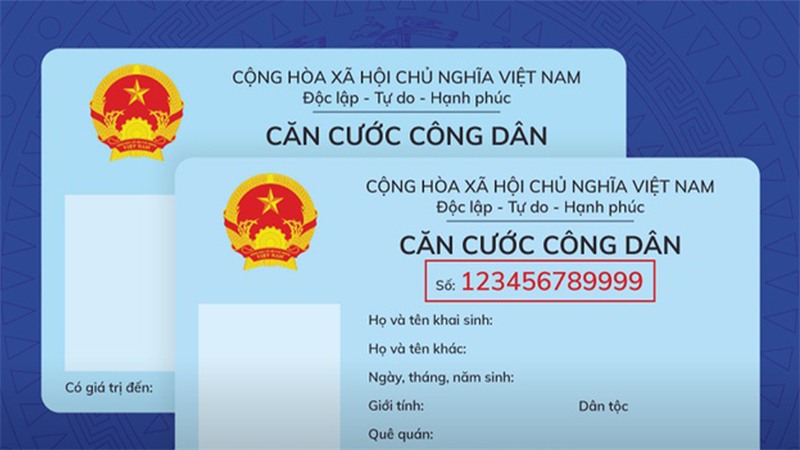What is an Identification Code? What is an Individual Identification Code used for? How to apply for an identification code? In the following article, Green Grocery will provide detailed information about the personal identification code and the extremely simple procedure for applying for an identification number.
1 What is a Personal Identification Code and What is its Structure?
A personal identification code is a unique number assigned to each citizen by the Ministry of Public Security. This code is linked to an individual from birth until death and remains unchanged and unique to that person.
Learn more about personal identification codes and how they apply to each citizen.
Personal identification codes are not randomly generated but are structured according to the regulations outlined in Article 13 of Decree No. 137/2015/ND-CP:
- The personal identification code consists of a 12-digit natural number. The first six digits represent the century of birth, gender, and place of birth, as well as the province or city where the citizen registered their birth, and the country code. The remaining six digits are random numbers.
 What is a Personal Identification Code and What is its Structure?
What is a Personal Identification Code and What is its Structure?
2 Procedure for Applying for a Personal Identification Number
The procedure for applying for a personal identification number is outlined in Circular No. 59/2021/TT-BCA, which provides detailed guidance on the Law on Citizen Identification. According to Clause 2, Article 5 of this Circular:
- When a citizen requests to be notified of their personal identification number and information in the national database on residency, they or their legal representative must submit a request to the Public Security office of the commune where they are registered as residing.
- Specifically, the citizen’s request must clearly state the purpose and the specific information needed; they must also present their Citizen Identification Card or ID card for verification by the competent authorities.
 Procedure for Applying for a Personal Identification Number
Procedure for Applying for a Personal Identification Number
3 The Utility of the Identification Code
In addition to providing access to the national database, the identification code offers several other convenient uses:
Retrieving Information from the National Database on Residency
The Ministry of Public Security continuously collects and updates citizen information, which is then transferred to the National Database. Individuals and authorized agencies can access this system when necessary.
 The Utility of the Identification Code
The Utility of the Identification Code
Substitute for Personal Tax Code
As per the 2019 Tax Administration Law, Article 35, once a citizen is assigned an identification code, it will replace their existing personal tax code.
Replacement for Other Forms of Identification in Real Estate Transactions
For Vietnamese citizens, the identification code can be used in place of other forms of identification, such as ID cards, citizen identification cards, passports, or other notarized documents, when conducting transactions in the field of real estate.
4 How to Look Up a Personal Identification Code
Retrieving the Personal Identification Code from the Citizen Identification Card
For individuals who already possess a Citizen Identification Card, the personal identification code is the 12-digit number on the card. This makes it convenient for citizens to look up their own code and that of their family members over the age of 15.
 Retrieving the Personal Identification Code from the Citizen Identification Card
Retrieving the Personal Identification Code from the Citizen Identification Card
Retrieving the Identification Code from the Residency Management Public Service Portal
For those who do not yet have a Citizen Identification Card, they can still look up their personal identification code on the Residency Management Public Service Portal launched by the Ministry. With just a few simple steps, citizens can access their identification code even without a chip-enabled Citizen Identification Card.
Here’s how to find your personal identification code online:
 Retrieving the Identification Code from the Residency Management Public Service Portal
Retrieving the Identification Code from the Residency Management Public Service Portal
The above information explains what a personal identification code is and how to obtain one. We hope that this helpful information has given you a clearer understanding of identification codes. Stay tuned for more informative articles, and don’t forget to check out our related article on identity accounts!
The Ultimate Guide to Earning and Redeeming Points on the Quà Tặng Vip App
Introducing the Quà Tặng Vip app – the ultimate customer loyalty tool from the MWG Corporation (The Gioi Di Dong). We’re here to take you on a journey through the exciting world of rewards and show you how to earn and redeem points on our exclusive app. It’s time to unlock a whole new level of perks and benefits that will revolutionize the way you shop. Join us and discover a world of exclusive privileges that will enhance your experience with MWG.











